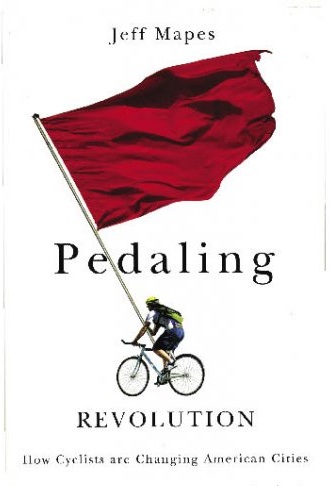 這集的Smart City Radio談到一本有趣的書:《Pedaling Revolution: How Cyclists Are Changing American Cities》。
這集的Smart City Radio談到一本有趣的書:《Pedaling Revolution: How Cyclists Are Changing American Cities》。作者Jeff Mapes(波特蘭居民,政治線記者)橫跨歐美大陸,深入阿姆斯特丹、巴黎、紐約、芝加哥、波特蘭,以及加州的Davis, Calif,比較這些城市的自行車騎士以及政府的自行車政策如何改變了都市。甚至,從芝加哥與波特蘭的經驗來看,自行車政策已經變成一個政治行動,而自行車騎士更宣稱他們在都市交通地景中有其應得的權力。
節目如下,作者的訪談是從約莫第25分鐘處開始。
從NYT上的書摘來看,下面這段話挺有意思:
For the young "creative class" that cities are fighting to attract, bicycles are a cheap, hip way to get around town. That's why Louisville — not exactly a beacon of the counterculture — has made a determined effort to become friendly to bicycling. The city's mayor sees it as a good way to attract those young people who will power the economy decades from now.當然,綠色不等於溫和。從經驗上看,不好的自行車政策也會帶來某種排擠效應(例如桃園縣的單車道就造成一個村落的毀滅)。就好像這篇書評寫到:
Toward the end of the book, Mapes gets into debates over bike lanes (are they really safer?), safety rules (should cyclists have to obey stop signs?) and traffic ideologies (should cyclists claim a full space in a lane, or stick to the edge of the road?) that only an obsessive or an advocate (hello!) is likely to be interested in.
Comments